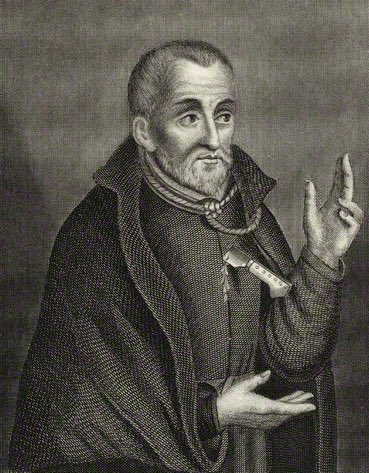Killian documents controversy - Wikipedia
The Killian documents controversy (also referred to as Memogate or Rathergate) involved six documents containing allegations about President George W. Bush's service in the Texas Air National Guard in 1972–73, en.wikipedia.org/wiki/Killian_d…
The Killian documents controversy (also referred to as Memogate or Rathergate) involved six documents containing allegations about President George W. Bush's service in the Texas Air National Guard in 1972–73, en.wikipedia.org/wiki/Killian_d…
allegedly typed in 1973. Dan Rather presented four of these documents as authentic in a 60 Minutes II broadcast aired by CBS on September 8, 2004, less than two months before the 2004 presidential election, but it was later found that CBS had failed to authenticate them.
Charles Foster Johnson's animated GIF image comparing a memo purportedly typewritten in 1973 with a proportional-spaced document made in Microsoft Word with default settings in 2004
Little Green Footballs (LGF) is an American political blog run by web designer
Little Green Footballs (LGF) is an American political blog run by web designer
Charles Foster Johnson.
In January 2018, Dan Rather began hosting an online newscast called The News with Dan Rather on The Young Turks' YouTube channel.
The program was created by Cenk Uygur, Ben Mankiewicz and Dave Koller. Uygur is Turkish-American and named the program
In January 2018, Dan Rather began hosting an online newscast called The News with Dan Rather on The Young Turks' YouTube channel.
The program was created by Cenk Uygur, Ben Mankiewicz and Dave Koller. Uygur is Turkish-American and named the program
after the Young Turks movement of the 20th century.
Several Supreme Court rulings (1976, 1978, 2010) on campaign finance motivated Uygur in the midst of the Occupy Wall Street movement to launch a long-term project, a political action committee named Wolf-PAC on
Several Supreme Court rulings (1976, 1978, 2010) on campaign finance motivated Uygur in the midst of the Occupy Wall Street movement to launch a long-term project, a political action committee named Wolf-PAC on
October 19, 2011, in New York City.
In a 2011 episode of The Young Turks, Uygur and his co host Ana Kasparian dismissed actress Olivia Munn's sexual harassment allegations against director Brett Ratner and Uygur defended Ratner bragging about having sex with Munn, saying that
In a 2011 episode of The Young Turks, Uygur and his co host Ana Kasparian dismissed actress Olivia Munn's sexual harassment allegations against director Brett Ratner and Uygur defended Ratner bragging about having sex with Munn, saying that
she likely “drove him crazy”.
RatPac Entertainment, LLC is an American media and entertainment company owned by Brett Ratner and James Packer.
Brett Ratner grandfather was d-CON mail order rat poison company founder and real estate developer Lee Ratner.
RatPac Entertainment, LLC is an American media and entertainment company owned by Brett Ratner and James Packer.
Brett Ratner grandfather was d-CON mail order rat poison company founder and real estate developer Lee Ratner.
Ratner has said that he "really didn't know" his biological father, and that he considers Alvin Malnik, a lawyer and businessman with alleged organized crime ties who opened the famous Forge restaurant in Miami Beach, to be his father, "the one who raised" him.
Malnik developed
Malnik developed

long-lasting business and personal relationships with several "Rat Pack" celebrities including Frank Sinatra and Dean Martin.
If you believe Forbes magazine (“The Invisible Enterprise”), Malnik essentially invented the black art of money-laundering, taking mob money and routing
If you believe Forbes magazine (“The Invisible Enterprise”), Malnik essentially invented the black art of money-laundering, taking mob money and routing
it to legitimate ventures (like real estate). To wit:
“In the 1960s, Miami lawyer Alvin Malnik set up the Bank of Commerce in the Bahamas. Mob money flowed into its secret numbered accounts by the hundreds of millions--(mob financier Meyer) Lansky money, most of it--and then out
“In the 1960s, Miami lawyer Alvin Malnik set up the Bank of Commerce in the Bahamas. Mob money flowed into its secret numbered accounts by the hundreds of millions--(mob financier Meyer) Lansky money, most of it--and then out
again into Tibor Rosenbaum’s International Credit Bank of Switzerland before returning to the United States for investment.”
Together with his friend Bernard Cornfeld, Rosenbaum founded the Banque De Credit International Genève in Geneva in the 1959, which went bankrupt in 1976,
Together with his friend Bernard Cornfeld, Rosenbaum founded the Banque De Credit International Genève in Geneva in the 1959, which went bankrupt in 1976,
combined with a considerable loss of prestige for the Hessische Landesbank, which was most recently closely associated with it. Rosenbaum originally financed arms purchases for Israel through the bank. For the major organized crime figure Meyer Lansky, who first met Rosenbaum in
1965, the bank also opened a connection to Israel.
James Roosevelt resigned from UNESCO in December 1966 and retired to become an executive of the Investors Overseas Service (IOS) in Geneva, Switzerland.
Roosevelt joined the IOS despite the overseas firm's concurrent
James Roosevelt resigned from UNESCO in December 1966 and retired to become an executive of the Investors Overseas Service (IOS) in Geneva, Switzerland.
Roosevelt joined the IOS despite the overseas firm's concurrent
investigation by the SEC for numerous irregularities.
When fugitive financier Robert Vesco obtained control of IOS from Bernie Cornfeld and absconded with approximately $200 million, Roosevelt initially stayed on under Vesco.
Among the charges that emerged during the 1970s, the
When fugitive financier Robert Vesco obtained control of IOS from Bernie Cornfeld and absconded with approximately $200 million, Roosevelt initially stayed on under Vesco.
Among the charges that emerged during the 1970s, the
SEC accused Vesco of embezzling $220 million from four different IOS funds. During 1973, Vesco fled to Costa Rica. Shortly before his departure, hoping to end the SEC investigation into his activities, Vesco routed substantial contributions to Richard Nixon through Nixon's nephew




Donald A. Nixon.
Vesco was also investigated for a secret $200,000 contribution made to the 1972 campaign to re-elect Nixon.
After Nixon won a landslide victory in the 1972 presidential election, he appointed George H.W. Bush as chair of the Republican National Committee (RNC).
Vesco was also investigated for a secret $200,000 contribution made to the 1972 campaign to re-elect Nixon.
After Nixon won a landslide victory in the 1972 presidential election, he appointed George H.W. Bush as chair of the Republican National Committee (RNC).
James Bath was also an acquaintance of former president George W. Bush, whom he met when both men were serving in the Texas Air National Guard in the early 1970s. After Bush started his first business, Arbusto Energy, Bath invested in the firm.
In 1975, James Bath met




In 1975, James Bath met
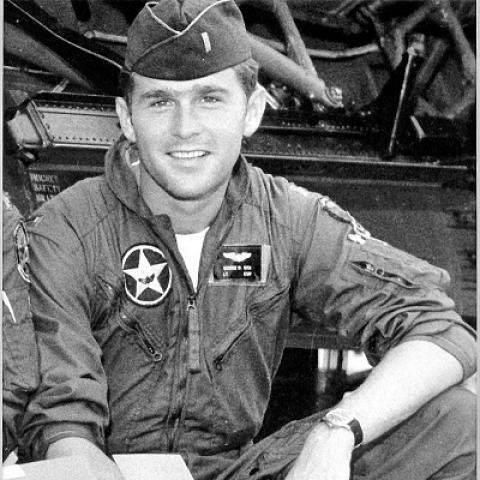



Salem bin Laden when bin Laden was interested in purchasing a used aircraft. Salem bin Laden was the son of Mohammed bin Laden, founder of the Saudi Binladin Group, one of the largest construction companies in the world.
Through bin Laden, Bath also met Khalid bin Mahfouz, the
Through bin Laden, Bath also met Khalid bin Mahfouz, the
son of Salem Bin Mahfouz, founder of National Commercial Bank, now the largest bank in Saudi Arabia, and for a time represented him as well.
In the 1970s Khalid bin Mahfouz bought and lived in a $3.5 million chateaux-style house, later named "Versailles," in the River Oaks area
In the 1970s Khalid bin Mahfouz bought and lived in a $3.5 million chateaux-style house, later named "Versailles," in the River Oaks area
of Houston. He also bought a four thousand acre ranch along the Trinity River in Liberty County, Texas, near the ranch of James Bath.
Bin Mahfouz was a non-executive director of Bank of Credit and Commerce International, a financial conglomerate later convicted of money
Bin Mahfouz was a non-executive director of Bank of Credit and Commerce International, a financial conglomerate later convicted of money
laundering, bribery, support of terrorism, arms trafficking, and many other crimes. Mahfouz personally owned a 20% stake in BCCI. He was indicted by a New York state grand jury for fraud but denied any culpability. In 1995, the fraud charges were settled for $225 million in lieu
of fines.
Safari Club members, the BCCI, and the United States cooperated in arming and funding the Afghan mujahideen to oppose the Soviet Union.
Jimmy Carter's new CIA director Stansfield Turner attempted to limit the scope of the Safari Clubs operations, Shackley, his deputy
Safari Club members, the BCCI, and the United States cooperated in arming and funding the Afghan mujahideen to oppose the Soviet Union.
Jimmy Carter's new CIA director Stansfield Turner attempted to limit the scope of the Safari Clubs operations, Shackley, his deputy
Thomas Clines, and agent Edwin P. Wilson secretly maintained their connections with the Safari Club and the BCCI.
In 1971, with the CIA's knowledge and approval, Edwin P. Wilson moved to the Office of Naval Intelligence, where he worked full-time for a secret intelligence unit
In 1971, with the CIA's knowledge and approval, Edwin P. Wilson moved to the Office of Naval Intelligence, where he worked full-time for a secret intelligence unit
called the Naval Field Operations Support Group (NFOSG) or Task Force 157.
Task Force 157's top secret communications channel was used to set up Henry A. Kissinger's secret 1971 visit to China.
While Jon Huntsman Jr was visiting the White House in 1971 during his father's https://t.co/dM4RVVlhqttwitter.com/i/web/status/1…

Task Force 157's top secret communications channel was used to set up Henry A. Kissinger's secret 1971 visit to China.
While Jon Huntsman Jr was visiting the White House in 1971 during his father's https://t.co/dM4RVVlhqttwitter.com/i/web/status/1…
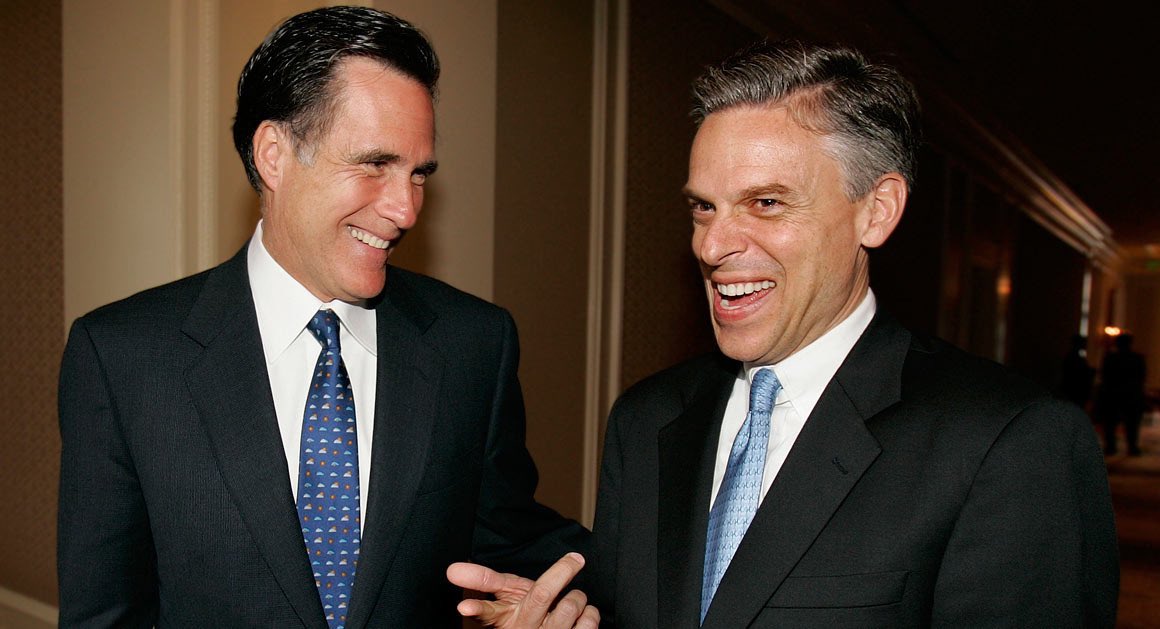
service as special assistant to the president, Henry Kissinger confided to the eleven-year-old that he was secretly traveling to China.
Henry Kissinger is credited with the American strategy of supporting the Safari Club implicitly — allowing it to fulfill American objectives



Henry Kissinger is credited with the American strategy of supporting the Safari Club implicitly — allowing it to fulfill American objectives
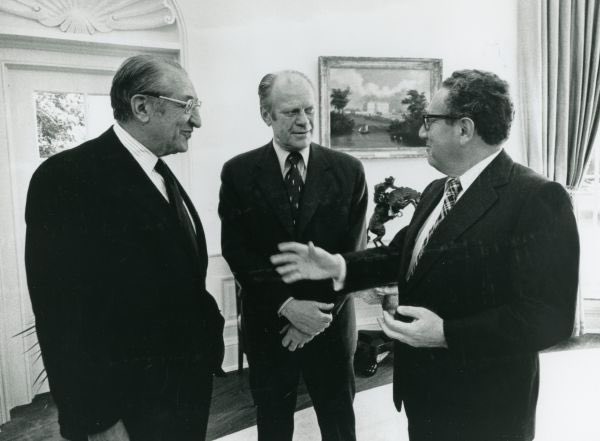


by proxy without risking direct responsibility.
The Safari Club was operated by Saudi arms dealer Adnan Khashoggi.
Khashoggi was born in Mecca, to Mohammad Khashoggi, who was King Abdul Aziz Al Saud's personal doctor, and Samiha Ahmed. Khashoggi's sister was author
The Safari Club was operated by Saudi arms dealer Adnan Khashoggi.
Khashoggi was born in Mecca, to Mohammad Khashoggi, who was King Abdul Aziz Al Saud's personal doctor, and Samiha Ahmed. Khashoggi's sister was author
Samira Khashoggi who married businessman Mohamed Al-Fayed and was the mother of Dodi Fayed.
Around 1964, Mohamed Al-Fayed entered a close relationship with Haitian leader François Duvalier, known as 'Papa Doc', and became interested in the construction of a Fayed-Duvalier oil
Around 1964, Mohamed Al-Fayed entered a close relationship with Haitian leader François Duvalier, known as 'Papa Doc', and became interested in the construction of a Fayed-Duvalier oil
refinery in Haiti. He also associated with the geologist George de Mohrenschildt. Fayed terminated his stay in Haiti six months later when a sample of "crude oil" provided by Haitian associates proved to be low-grade molasses.
George de Mohrenschildt, the son of a wealthy noble,
George de Mohrenschildt, the son of a wealthy noble,
was born in Russia on 17th April, 1911. His father and uncle, ran the Branobel Oil Company in Baku on the coast of Caspian Sea.
In 1939 de Mohrenschildt went to work for Humble Oil, a company that was co-founded by Prescott Bush.
During this period de Mohrenschildt met
In 1939 de Mohrenschildt went to work for Humble Oil, a company that was co-founded by Prescott Bush.
During this period de Mohrenschildt met
George H. W. Bush. According to Bush: "I first met him in the early 40s. He was an uncle to my Andover roommate (Edward Hooker)." He also met Jacqueline Bouvier, who called him "Uncle George" and would sit on his knee.
After the Second World War de Mohrenschildt moved to
After the Second World War de Mohrenschildt moved to
Venezuela where he worked for Pantepec Oil, a company owned by the family of William F. Buckley. In 1950 he launched an oil investment firm with Edward Hooker with offices in New York City, Denver and Abilene. In 1952 De Mohrenschildt moved to Dallas where he worked for the
oil millionaire, Clint Murchison. He joined the Dallas Petroleum Club and became a regular at Council on World Affairs meetings, a right-wing organization established by Neil Mallon.
In February, 1963 George de Mohrenschildt introduced Marina Oswald and Lee Harvey Oswald to
In February, 1963 George de Mohrenschildt introduced Marina Oswald and Lee Harvey Oswald to
Ruth Paine.
During the Second World War, Jack Crichton served with the Office of Strategic Services (OSS) in Europe. In 1946 Everette DeGolyer recruited Crichton. According to Russ Baker: "He started and ran a baffling array of companies, which tended to change names
During the Second World War, Jack Crichton served with the Office of Strategic Services (OSS) in Europe. In 1946 Everette DeGolyer recruited Crichton. According to Russ Baker: "He started and ran a baffling array of companies, which tended to change names
frequently. These operated largely below the radar, and fronted for some of North America's biggest names, including the Bronfmans (Seagram's liquor), the Du Ponts, and the Kuhn-Loeb family of financiers."
In 1952 Jack Crichton joined a syndicate that included Everette DeGolyer
In 1952 Jack Crichton joined a syndicate that included Everette DeGolyer
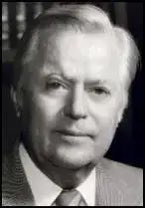
and Clint Murchison to use connections in the government of General Francisco Franco to acquire rare drilling rights in Spain.
In August 1953 Crichton joined the Empire Trust Company. He eventually became a vice-president of the organization. According to Stephen Birmingham,
In August 1953 Crichton joined the Empire Trust Company. He eventually became a vice-president of the organization. According to Stephen Birmingham,
the author of Our Crowd: The Great Jewish Families of New York (1962) the company had a network of associates that amounted to "something very like a private CIA". The Empire Trust was also a major investor in the defence contractor General Dynamics.
In the 1950s Jack Crichton
In the 1950s Jack Crichton
became involved with several oil men who began negotiating with Fulgencio Batista, the military dictator of Cuba. A key figure in this was George de Mohrenschildt, who at that time worked for a company called Cuban-Venezuelan Oil Voting Trust Company (CVOVT) that had been
established by William Buckley Sr. Crichton later remarked that "I liked George. He was a nice guy." It is argued by Russ Baker that Crichton's Empire Trust Company played a major role in the financing of the Cuban venture.
On 30th November, 1956, The New York Times reported
On 30th November, 1956, The New York Times reported
that: "The Cuban Stanolind Oil Company, an affiliate of the Standard Oil Company (Indiana), has signed an agreement with the Cuban-Venezuelan Oil Voting Trust and Trans-Cuba Oil Company for the development of an an additional 3,000,000 acres in Cuba. This is in addition to the
original agreement covering 12,000,000 acres." George de Mohrenschildt later told Albert E. Jenner that CVOVT had managed to obtain leases covering nearly half of Cuba in the 1950s.
Jenner was a director of General Dynamics and the chairman of the of Judicial Selection
Jenner was a director of General Dynamics and the chairman of the of Judicial Selection
Committee of the American Bar Association.
Jenner had a history of representing figures from Jack Rubenstein's (AKA Jack Ruby) criminal milieu, such as Allen Dorfman, an insurance agency owner, and a consultant to the International Brotherhood of Teamsters (IBT) Central
Jenner had a history of representing figures from Jack Rubenstein's (AKA Jack Ruby) criminal milieu, such as Allen Dorfman, an insurance agency owner, and a consultant to the International Brotherhood of Teamsters (IBT) Central
States Pension Fund who was a close associate of longtime IBT President Jimmy Hoffa, and associated with organized crime via the Chicago Outfit.
Following the assassination of John F. Kennedy, Jenner was named as assistant counsel to the Warren Commission. Along with
Following the assassination of John F. Kennedy, Jenner was named as assistant counsel to the Warren Commission. Along with
Wesley J. Liebeler, Jenner was appointed and performed the "Area III" assignment, "Lee Harvey Oswald's Background."
In 1968, Lyndon B. Johnson appointed Jenner to the U.S. National Commission on the Causes and Prevention of Violence, which Johnson established in the wake of the
In 1968, Lyndon B. Johnson appointed Jenner to the U.S. National Commission on the Causes and Prevention of Violence, which Johnson established in the wake of the
assassinations of Martin Luther King Jr. and Robert F. Kennedy to study the causes of violence in the U.S.
With the impending retirement of Chief Justice Earl Warren, Lyndon Johnson hoped to elevate Associate Justice Abe Fortas to that post and Thornberry to Fortas' seat.
With the impending retirement of Chief Justice Earl Warren, Lyndon Johnson hoped to elevate Associate Justice Abe Fortas to that post and Thornberry to Fortas' seat.
Clark Clifford thought Albert Jenner would be a more acceptable candidate for Senate Republicans than Thornberry and help make them more amenable to Fortas as Chief Justice. Fortas' nomination was derailed by various scandals and withdrawn, which also ended Thornberry's
nomination.
After leaving the government in 1950, Clark Clifford practiced law in Washington, D.C., but continued to advise Democratic Party leaders. One of his law clients was John F. Kennedy, then a U.S. Senator, and Clifford tried to assuage Truman's suspicion of Kennedy and
After leaving the government in 1950, Clark Clifford practiced law in Washington, D.C., but continued to advise Democratic Party leaders. One of his law clients was John F. Kennedy, then a U.S. Senator, and Clifford tried to assuage Truman's suspicion of Kennedy and
his father, Joseph P. Kennedy.
Clifford was the head of the presidential transition of John F. Kennedy. Clifford was also a member of President-elect Kennedy's Committee on the Defense Establishment, headed by Stuart Symington.
From 1982 to 1991, Clark Clifford served as
Clifford was the head of the presidential transition of John F. Kennedy. Clifford was also a member of President-elect Kennedy's Committee on the Defense Establishment, headed by Stuart Symington.
From 1982 to 1991, Clark Clifford served as
chairman of First American Bankshares, which grew to become the largest bank in Washington, D.C. The bank was nominally owned by a group of Arab investors, but in order to assuage fears from the Federal Reserve, Clifford had assembled a board of distinguished American citizens to
exercise day-to-day control. In 1991, Robert M. Morgenthau, the District Attorney for New York County (coterminous with the borough of Manhattan), disclosed that his office had found evidence that BCCI secretly owned First American. Morgenthau convened a grand jury to determine



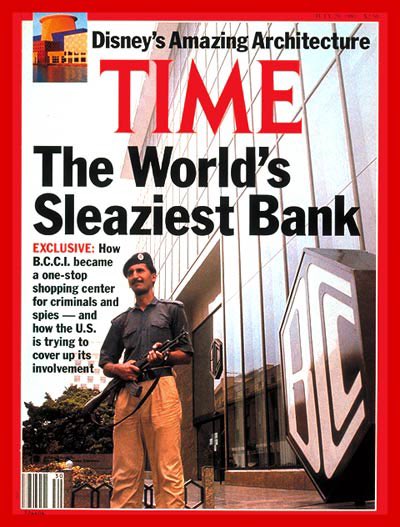
whether Clifford and his partner, Robert A. Altman, had deliberately misled federal regulators when the two men assured them that BCCI would have no outside control.
Clifford insisted that he had no knowledge of illegal activity at First American, and insisted that he himself
Clifford insisted that he had no knowledge of illegal activity at First American, and insisted that he himself
had been deceived about the extent of BCCI's involvement. Using the support of Kamal Adham, both former president Robert A. Altman and former chairman Clifford were indicted on largely circumstantial evidence.
Kamal Adham closely worked with George H. W. Bush, who was appointed
Kamal Adham closely worked with George H. W. Bush, who was appointed
CIA director in 1976.
Raymond Close, a former CIA station chief in Saudi Arabia, left CIA and began to work for Adham in 1977 when he was the head of the GIP. Adham was also one of the major shareholders of the Bank of Credit and Commerce International (BCCI). In 1972, he met
Raymond Close, a former CIA station chief in Saudi Arabia, left CIA and began to work for Adham in 1977 when he was the head of the GIP. Adham was also one of the major shareholders of the Bank of Credit and Commerce International (BCCI). In 1972, he met
the founder of the BCCI, Agha Hasan Abedi. The same year Adham founded a contracting firm, Almabani, in Saudi Arabia.
Adham along with Adnan Khashoggi was one of the founders of the gold company, Barrick Gold Corporation that was established in 1983.
In the 1960s and 1970s,
Adham along with Adnan Khashoggi was one of the founders of the gold company, Barrick Gold Corporation that was established in 1983.
In the 1960s and 1970s,
Khashoggi helped bring together Western companies and the Saudi Arabian government, to satisfy its infrastructure and defense needs. Between 1970 and 1975, Lockheed paid Khashoggi $106 million in commissions.
Khashoggi gained influence with U.S. President Richard Nixon by
Khashoggi gained influence with U.S. President Richard Nixon by
donating US$200 million to his 1972 political campaign, through a friendly bank circumventing existing laws that prohibited such large sums from American corporations to political campaigns.
Khashoggi was implicated in the Iran–Contra affair as a key middleman in the




Khashoggi was implicated in the Iran–Contra affair as a key middleman in the

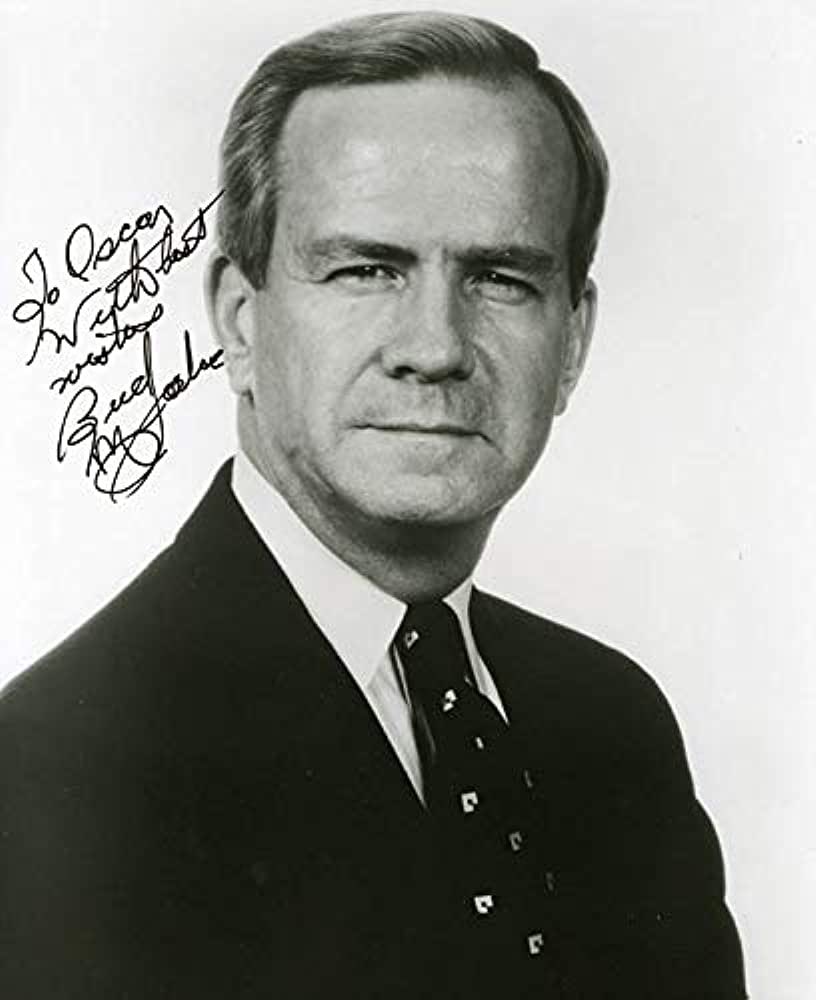


arms-for-hostages exchange along with Iranian arms dealer Manucher Ghorbanifar and, in a complex series of events, was found to have borrowed money for these arms purchases from the Bank of Credit and Commerce International (BCCI) with Saudi and United States backing. His role in
the affair created a related controversy when Khashoggi donated millions to the American University in Washington DC, to build a sports arena which would bear his name. Khashoggi was a member of the university's board of trustees from 1983 until his indictment on fraud and other
charges in May 1989.
Manucher Ghorbanifar (nicknamed Gorba) is best known as a middleman in the Iran–Contra Affair during the Ronald Reagan presidency. Gorba re-emerged in American politics during the lead-up to the 2003 invasion of Iraq during the first term of President
Manucher Ghorbanifar (nicknamed Gorba) is best known as a middleman in the Iran–Contra Affair during the Ronald Reagan presidency. Gorba re-emerged in American politics during the lead-up to the 2003 invasion of Iraq during the first term of President
• • •
Missing some Tweet in this thread? You can try to
force a refresh

 Read on Twitter
Read on Twitter

